Separation Anxiety in Dogs – How to efficiently treat this behavior?
Almost every dog owner will have to deal with separation anxiety at some point in their pup’s life. In fact, we believe that it’s something every dog owner should know more about. Why? Well, separation anxiety in dogs is more common than you think!
It just so happens that most of the time, people are not aware that their pup’s acting up behavior is actually a sign of this condition. Many dogs develop separation anxiety and it is one of the most common behavior problems affecting canine pet health.
Your Dog May Be Suffering From Severe Separation Anxiety
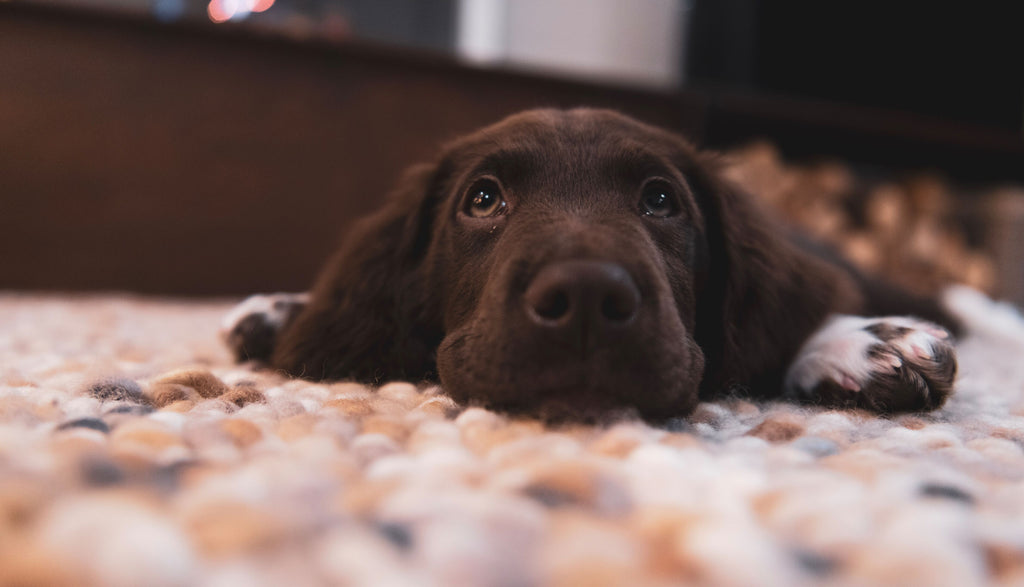
Have you ever encountered the following scenarios?
-
You leave home for work and come home to a house that looks like it was hit by a tornado.
-
You leave the room for a few minutes and get "summoned" back by a lot of whining and yelping.
-
You place a pooch in a separate room—if you have more than one at home—and one dog displays anxious behaviors (or both of them).
All of the above are instances of separation anxiety folks! As you can see, stories about separation anxiety in dogs are usually filled with horror (the house becoming a total wreck) or drama (you can’t leave home without the dog).
However, there are ways to address this and have your life back. Not just that, your pooch deserves some peace of mind, too! And don't reach for anti-anxiety medication or opt for conventional drug therapy just yet!
Besides walking you through simple and practical ways to manage separation anxiety, we will also go over the factors that trigger separation anxiety and affect your dog's behavior sooner or later.
Causes of a Dog's Separation Anxiety
No one knows for sure what causes separation anxiety in dogs. Either it is a behavioral problem or perhaps your dog is naturally prone to anxiety. Many dogs experiencing separation anxiety can display several distress behaviors. This be can anything from house soiling and excessive barking to more serious manifestations such as destructive acts and chronic bouts of a panic attacks.
One theory is that this mental health issue is more prevalent among shelter dogs, linking separation anxiety to pooches that experienced a traumatic event, among other possible triggers. How about we check out the factors that may encourage an abnormal influx of stress hormones in a dog's body?
The Usual Culprits That Develop Separation Anxiety

Change in routine or schedule
This is the most common trigger of separation anxiety, especially if the change is abrupt. Here's a quick example: your work schedule suddenly becomes altered and your dog continues to expect that you will spend as much time with him on a daily basis. The fear of abandonment, which usually begins with reduced physical contact, stimulates extreme stress and eventually triggers distress responses.
Change of family or change of guardian
Imagine waking up one day and you’re surrounded by strangers who do not know a thing about you. This is typical for shelter dogs, particularly among high-energy dogs that need a lot of mental stimulation. Make sure that you’ve come as close as possible to your perfect match when adopting.
Change in family members and residence
The addition or loss of a family member may trigger the development of separation anxiety in dogs. Most dogs suffering from separation anxiety are usually bothered by the sudden absence of a loved one. This can have an effect on a dog's ability to go about with his typical daily routine, which can lead to destructive behaviors.
Alternatively, unfamiliar surroundings can make your dog feel that he or she needs to hold on to anything (or anyone) familiar. It really is a matter of comfort and feeling safe. Other dogs with separation anxiety may even attempt to escape confinement repeatedly no matter how much house training they've already had.
Symptoms of Separation Anxiety in Dogs
Guilt-tripping
One of the low-key signs of separation anxiety is when your pooch won’t come near you after you’ve been gone for a while. That’s guilt-tripping and it is a behavior that an anxious dog will exhibit either regularly or just during rare occasions.
Urinating and defecating erratically
This form of semi-rebellious behavior can mean that the dog is upset from being apart from you. When a dog experiences separation anxiety, he may either withhold urination and defecation or do it excessively and in the oddest of places.
It's not uncommon that some dogs with separation anxiety can be prone to urinary tract infections and similar medical problems. It is crucial to take note that even a house-trained pooch can have this problem if separation anxiety gets in the picture. And urinary tract infection can lead to more issues, too.
Over-excitement once you get home
One of the more prominent signs of separation anxiety is when your dog exhibits over-ecstatic behavior when he sees you after being away for just a few hours or a day. Sure this sounds a bit surprising, but your canine family member should not act like that at all.
Destroying things and digging
Dog suffering from separation anxiety typically develop the habit of chewing on things, destroying furniture, digging at hallways, and clawing at carpets, among other destructive behaviors. Again, it doesn't matter if your pet is completely house-trained or has gone through crate training sessions.
These behaviors can also result in self-injury and must be taken seriously. Please note that if the dog does these things while you are at home, then something else is the problem. However, dogs suffering from separation anxiety usually do this during their alone time.
Pacing and escaping
Walking back and forth, in circles, or going repeatedly to the door when you are preparing to leave or once you’re gone may all be symptoms of separation anxiety. If the dog does this while you’re at home just relaxing, then someone needs to go potty!
Additionally, a certified applied animal behaviorist will tell you that a dog that keeps trying to escape when you’re gone or when he is trying to go after the person who left has separation anxiety. On the other hand, when a dog does this when the significant human is home, then it can be because of other reasons.
Barking and howling
Howling is one of the primal ways instilled in a dog's brain when it comes to getting in touch with family members. It’s like texting your mom, dad, or kid wherever they are. Repeatedly doing this for no reason is often one of a dog's signs when he's upset, especially if he's suffering from storm phobias.
Eating poop
No one wants to hear about this, but a dog eating poop when his or her favorite person is away is definitely not normal. And you don't need a veterinary behaviorist to figure the whole thing out, too. Separation anxiety can be so devastating that it will disrupt your dog's mind in a lot of ways.
Whew! That’s a lot of symptoms! It is best to help the dog cope with you being away by knowing by having an idea of the best treatment options for separation anxiety in dogs. Take a look below for more information on these.
Pros and Cons of Using Modern Medicine to Treat Separation Anxiety
Modern medicine can help your dog deal with separation anxiety. The problem is, you cannot give your dog any of the treatments without consulting a veterinarian. You also won’t have access to the anti-anxiety medications unless your veterinarian prescribes them.
As for pros, well, there’s convenience. Just pop a pill and your over-energetic pooch will be so sleepy and "well-behaved." But is it really worth it? Granted that medications are usually only given in severe cases of dog separation anxiety, the effect on your dog and the effect on your wallet may be a bit too severe in the long run.
This is why it is highly recommended to consult a veterinary behaviorist before agreeing to medicate your dog, especially since some of the signs and symptoms of dog separation anxiety can be the same signs and symptoms for serious medical conditions.
Perhaps the best thing that modern medicine brings to your pooch is that in severe cases, medication can help your dog stay calm enough so you can start or continue behavioral training. However, other options may be better, depending on your dog’s anxiety level and other problems.
Please keep in mind that it is very rare that modern medicine alone will be enough. Oftentimes, you still need to use lots of behavior modification to help your dog overcome his or her anxiety problems. Most dogs need a combination of behavior modification and medication.
The medication will be weaned off later when the dog shows signs of behavioral improvement. For this reason, you’ll need the services of both a vet and a certified animal behaviorist if you choose this route. And that’s not cheap!
Natural Products for Dog Separation Anxiety
If modern medicine is not for you, natural products for separation anxiety include homeopathic anti-anxiety for dogs and behavioral training. We’ll discuss more of the behavioral training and homeopathic options for dog separation anxiety below.
Homeopathic anti-anxiety for dogs
Do homeopathic products work for dogs? Yes, it does! But how? The homeopath will usually interview you or ask questions about your pet. This can involve some more research and follow-up questions so that the homeopath can understand what is wrong and what natural products may work.
Based on the information you’ve provided and years of training and knowledge, the homeopath can then make a custom product for your dog or a simple homeopathic-based package. Dogs with separation anxiety require a solution specially made for them
We highly recommend our custom product to help your pooch if he suffers from separation anxiety because separation anxiety in dogs (and anxiety in general) can have an intermingling of factors. With the custom product, we can combine different homeopathic products into one special formula.
Great Behavioral Solutions for Separation Anxiety in Canines
Depending on how severe your dog’s separation anxiety is, behavioral solutions may help. The first step is to determine when is it that your dog starts to manifest signs of separation anxiety. Does it start when you’re preparing to leave (pre-departure onset) or when you’re already gone? From here, you can choose which suggestions may help you below:
Pre-departure anxiety
Changing your routine may help if you notice your dog starting to get excited, worried or sick when you begin to get ready for work or leave the house. Some dogs begin whining, crying as if in pain, pacing, running all over, or barking the moment you show signs of leaving home.
It might be "cute" to think that your furry friend loves you so much that the thought of you never coming back makes him or her crazy. But hey, imagine feeling that way every time someone leaves the house. That’s not cute at all!
Here’s how you can help. Try to teach your dog that getting your keys, putting on your coat, or changing your clothes doesn’t always mean that you’re leaving. The way you can do this is by exposing your pooch to these cues several times a day (and staying home).
For instance, you can go put on your hat or lipstick, get your keys and bag, and then watch TV. Perhaps you can put on your coat and then go to the bedroom to hang out. The dog will then realize that these "actions" don’t always lead to you leaving and he or she will still get to spend time with you.
Just a word of warning though, this is not a one-day miracle. Your fur baby has learned your leaving-the-home cues over many years, months, or weeks. It is only fair to give your dog a few weeks to adjust to your "new" routine. A dog learns easily, but patience is important here.
Okay, once your dog is fine with you going through your pre-departure rituals, or if your dog only experiences separation anxiety when you’re gone, then the next behavioral solution may work.
Graduated absences and graduated departures
From the name alone, it is easy to see what this entails—you have to train your dog to be okay with you being gone for long and longer periods of time. How? The idea is to get your fur baby accustomed to you not being in his or her line of sight at all times. You can even integrate this with your crate training sessions.
For example, if your dog is used to you being in the same room all the time, you can ask your dog to stay on the other side of the door while you continue doing your things. From there, you can move on to spending hours away from each other in different rooms of the house.
You can let your dog hear your voice at the initial stages, but the idea is to reassure your dog that just because he or she cannot see you, it does not mean that you’re never ever coming back. Think of this as establishing a "safety cue" with your pet.
You can even make this into a game until the dog is fine with you being somewhere else and out of sight. The key is a lot of patience and starting very slowly from being gone for a few seconds, to a few minutes, moving on to a few hours.
Mind your manners
For both of the behavioral solutions described above to work, you will have to lessen the contrast between you being gone and you being home. Try not to get your dog too excited the moment you walk in through the door when getting home. How?
Rather than praising your dog when he or she jumps up on you or shows signs of extra excitement and happiness, be as calm as possible and only give the dog some attention when he or she has calmed down.
Interestingly, this one is a strategy that a dog sitter, a dog walker or people working in a doggy daycare will also use. This will teach your fur kid that running around and jumping up and down is not the polite way to greet you when you get home. That’s how dogs and wolves teach their pups, so it won’t hurt to try!
Will Dog Anxiety Ever Go Away?
It would be misleading to say that canine separation anxiety will go away 100%. However, with the help of homeopathic anti-anxiety for dogs, positive reinforcement, behavioral training, and lots of love, this issue can be managed nicely. Yes, even to the point of non-existence!
Properly keeping a dog occupied through the use of a food toy or a stuffed kong toy can also help alleviate feelings of unease. You can also stimulate your pet to release pent-up energy by integrating games and activities like tug of war and having a puzzle toy on hand. Just remember to take it easy with your food reward to curb any weight issues in the long run.
Separation Anxiety in Dogs: The Good, The Bad, and The Beautiful
Oh my! We know how difficult canine separation anxiety is for pet parents and it’s not fun! Too often, pet parents feel like they are not giving their furry friend enough attention when he starts showing symptoms of separation anxiety. We hope that through this article, you’ve learned that you’re not to blame for such behavioral displays and that there are options you can try to help you out.
From natural homeopathic products to behavioral training, we’ve given you the information you need so that you can better understand what your dog is going through. We guess that if your dog is indeed manifesting canine separation anxiety, it does have a positive note. Serious medical conditions can also cause the same symptoms as anxiety in dogs, and hence, separation anxiety is the lesser evil so to speak.
Can we recommend anything? We’ll go for the homeopathic route! You’re free to contact us at Zumalka for any concerns or questions regarding using homeopathic products for your dog with anxiety. Remember, we are just a few clicks away!
Contacting us, reaching out to us, and signing up is completely FREE. What’s more, you can also join us on Facebook or follow our board on Pinterest. Getting in touch with us is so easy, you surely won’t have any "separation anxiety" yourself!


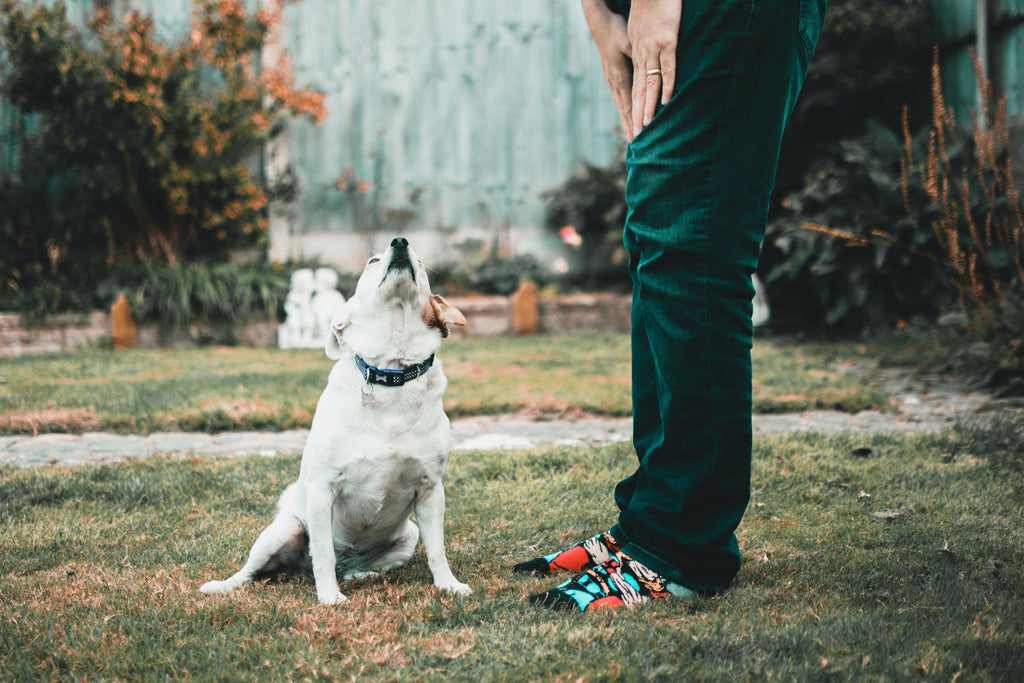
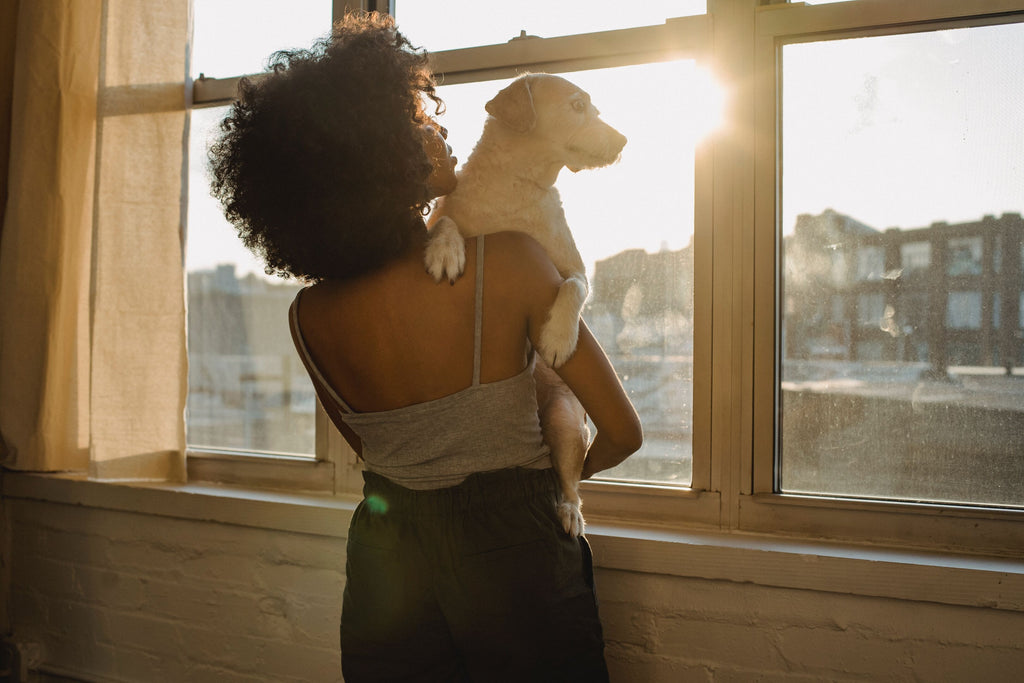
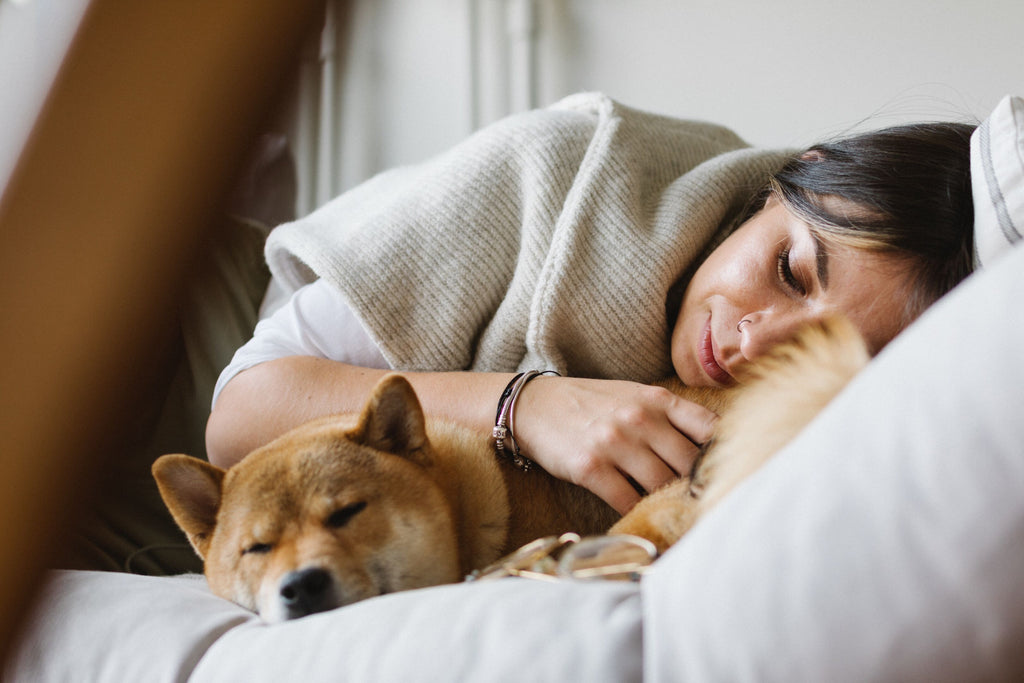


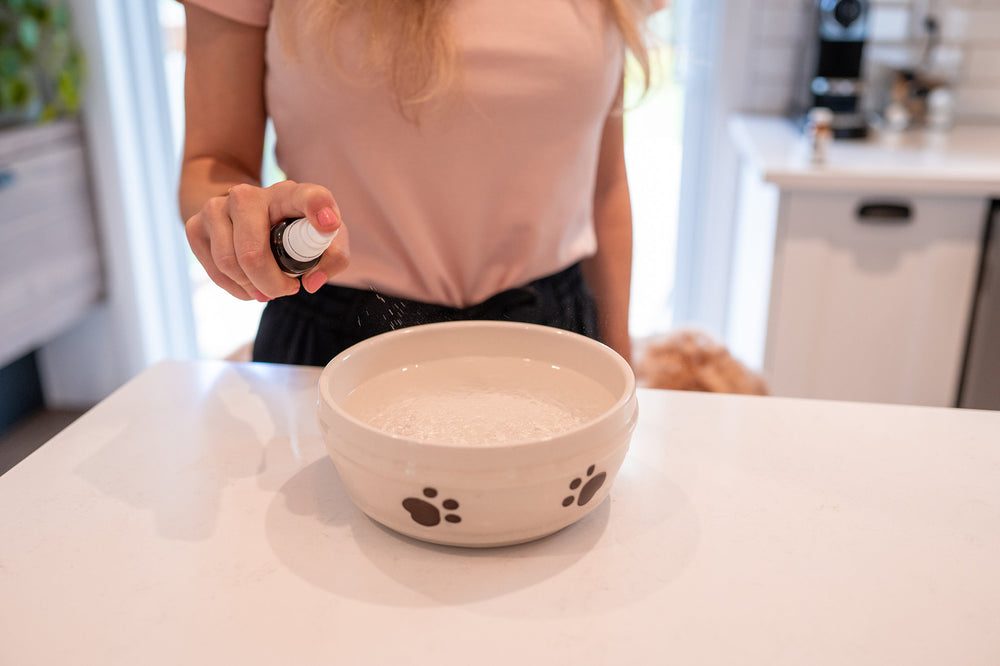


Thank you for sharing the blog related to separation anxiety in dogs. I felt some symptoms in my dog. I think I need to take attention to my dog more. I appreciate your tips.
What i do is exercise my dog at least 30 minutes before i leave the house. Just like us the human, when we get tired, we need rest. so a tired dog will quickly go into a resting mode that will relax your dog and divert its attention to either food or sleep
If I am lack of time to exercise my dog, before I leave the house, I will get items or clothes that have my smell for my dog in advance. Just before I leave the house, play specialized soothing dog music (https://cutt.ly/5wzhVx) that helps my dog to relax and slowly fall asleep
Hope the above help
Thank you for this separation anxiety. My almost 7 years old whippet. She gets pre anxiety when I get ready to leave the house.. At home very anxiety ridden, follows me until I do leave. I feel terrible I hurt my baby. She looks so sad. My home is dysfunctional and effects her. I live her so much. She was lost 2 years ago. My son lost her in a store parking lot. List 4 nights, I found her 5 days later. Thank you, this is a very sad situation. She will be seeing her vet soon. Will discuss this with her. My cat is the best.
When I go up to bed my dog cries until I come down to her. We have space saver stairs so she can’t come to bed with me.
hi thanks for the information :)
Leave a comment